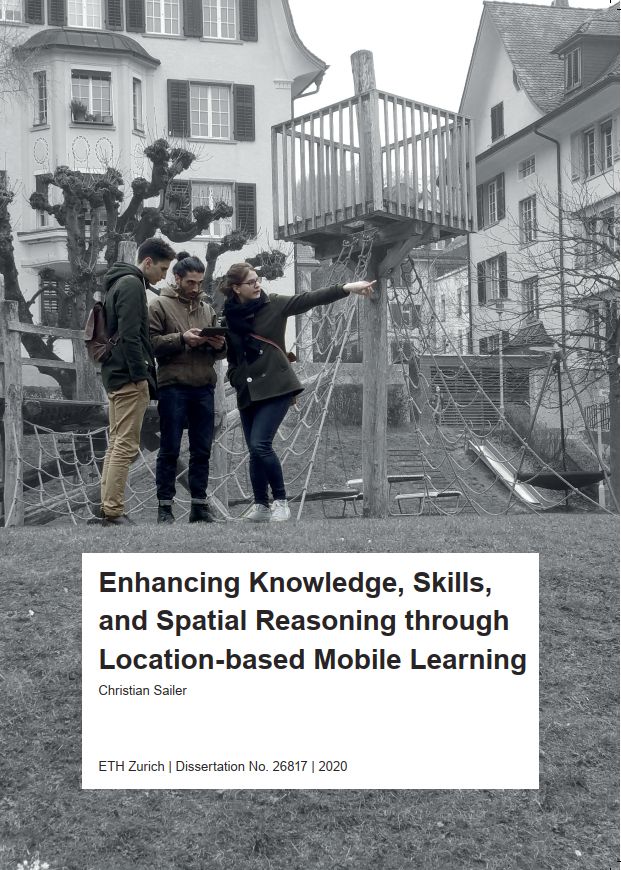Enhancing Knowledge, Skills, and Spatial Reasoning through Location-based Mobile Learning
Location-based mobile learning (LBML) involves learning in and about locations in order to explore, analyze, describe, and evaluate phenomena in authentic learning experiences and incorporate them into the real world. Learners gain an understanding of both the immediate environment, using all the senses and spatial perception to create a holistic impression of the environmental phenomena. Mobile mapping technologies and location-based services are utilized to link learning contents to specific locations as stories, tasks, or assignments. A large number of research projects on mobile learning have investigated LBML systems and LBML approaches with regard to learner satisfaction, usability, and efficiency. The projects achieved predominantly positive results regarding motivation and engagement but only fragmented results regarding the cognitive learning outcomes. This dissertation describes how an LBML system utilizing GIS technology enhances the educational learning outcomes with a special focus on the spatial thinking process. Furthermore, this dissertation describes novel approaches of visual analytics with 2D and 3D map web components to produce new teaching strategies during the activities and new metacognitive strategies to evaluate and reflect the activity.
The study presented in this dissertation covers case studies in universities, vocational schools, and informal education environments using design-based research to develop a mobile-friendly interactive mapping platform. Furthermore, the platform includes multimedia capabilities and interfaces to connect external services and content. The main study was conducted in a secondary school under real conditions and evaluated the technology regarding the learning performance and the teaching activities before, during, and after the activity. The results reveal a better cognitive learning outcome in classroom exams when a teaching sequence of several weeks includes an outdoor activity of a double lesson. Moreover, there is potential for enhancing learning beyond the outdoor part to improve spatial reasoning. Long-term self-assessment of the learners, however, resulted in no impact, whether cognitively or affectively. The workload for outdoor teaching compared to classroom teaching is higher mainly due to the profound inspections of the location. The findings and their implications for research and teacher education were discussed in order to corroborate the educational value of LBML to motivate educators using LBML strategies for teaching.
Dissertation_CSailer_printA4farbig_20210116
